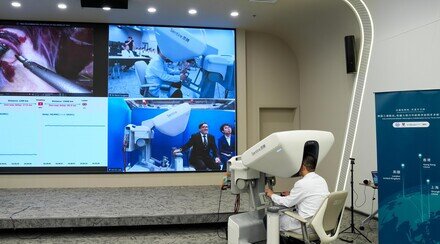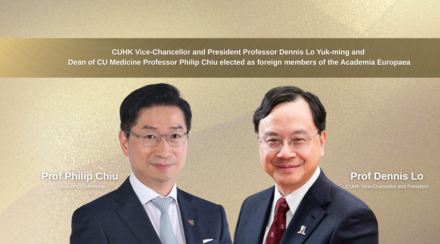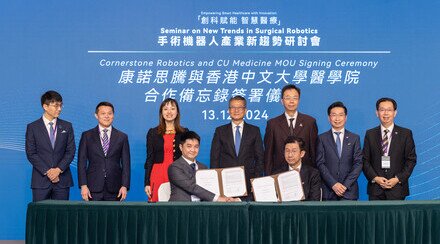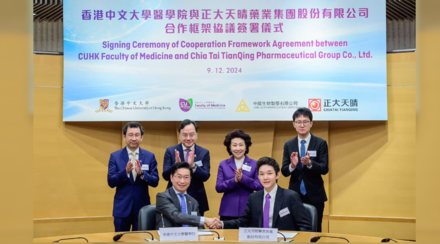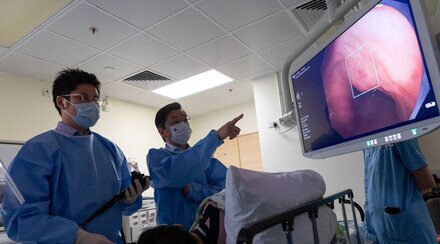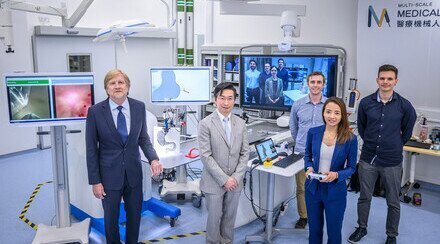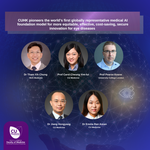CU Medicine and NAM celebrate new MOU partnership and hold CUHK-NAM Distinguished Lecture and International Health Policy Fellowship Seminar to advance medical innovations for ageing populations
The Centre for Bioethics (the Centre) at The Chinese University of Hong Kong (CUHK), together with the National Academy of Medicine (NAM), the School of Life Sciences at CUHK, and the Gerald Choa Neuroscience Institute, co-organised the CUHK–National Academy of Medicine (NAM) Distinguished Lecture and International Health Policy Fellowship Seminar on 8 September 2025, during which CUHK’s Faculty of Medicine (CU Medicine) and NAM celebrated their collaboration to advance the development of healthcare policies and bioethical education. The event was graced by Professor Dennis Lo Yuk-ming, Vice-Chancellor and President of CUHK, and Dr Victor Dzau, President of NAM, and brought together leaders in science, medicine and policy joining the event.
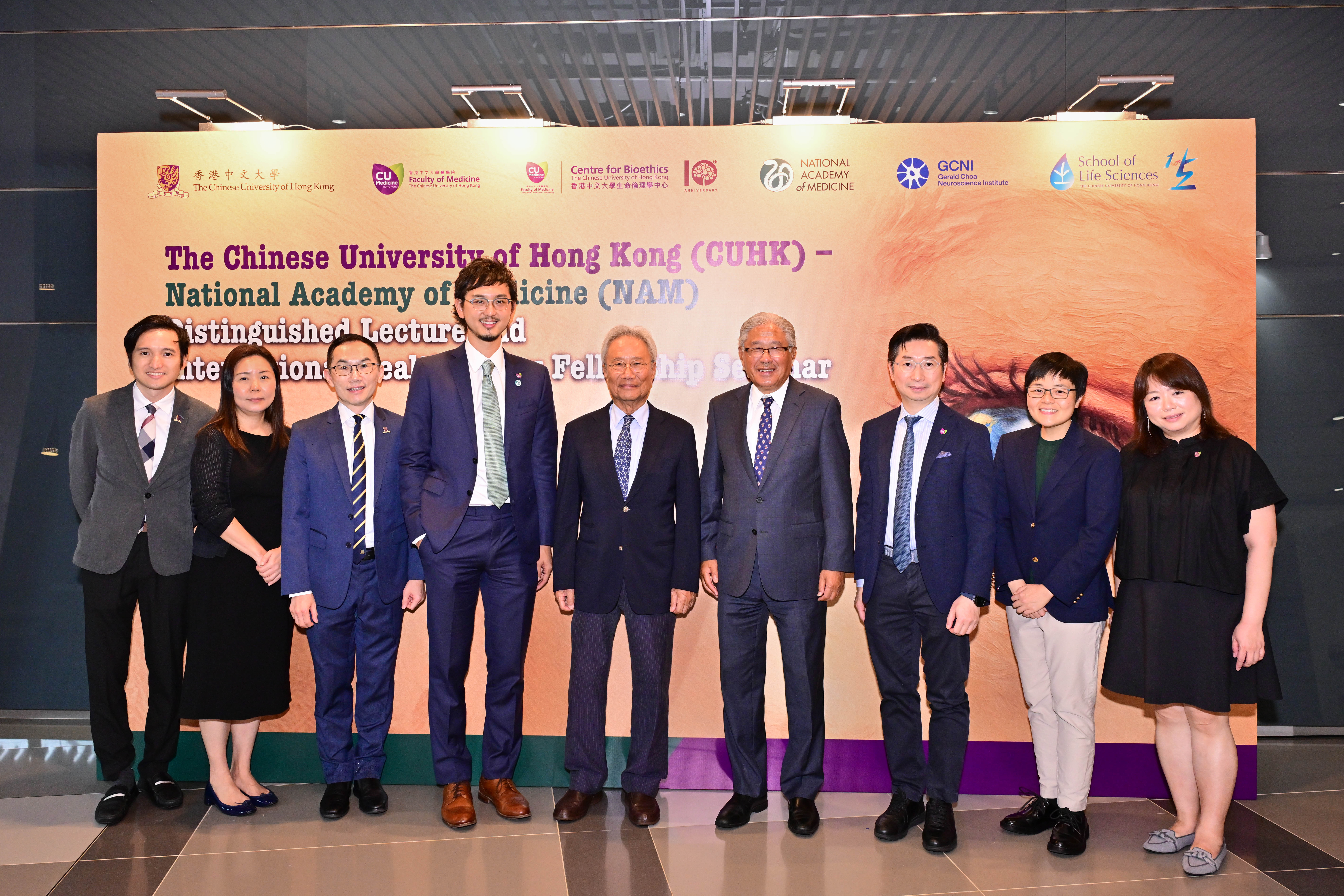
Dr Victor Dzau (4th from right), President of NAM;Dr Edgar ChengWai-kin, President of the Lanson Foundation and Benefactor of the Centre (5th from left); and Professor Philip Chiu, Dean of CU Medicine (3rd from right); Professor Roger Chung Yat-nork (4th from left) and Dr AnnLau Sin-nga (1st from right), both being Co-Directors of the Centre; take a group photo with speakers including Professor Kim Chow (2nd from right), ProfessorVincent Mok (3rd from left), ProfessorSandra Chan (2nd from left), and DrOwen Ko (1st from left).
A landmark MOU signing ceremony marks the launch of the endowed CUHK-NAM International Health Policy Fellowship Program
A major highlight of the event was the signing of the Memorandum of Understanding (MOU), officiated by Professor Philip Chiu Wai-yan, Dean of CU Medicine, and Dr Dzau. The new MOU, effective since August 2025, perpetuates the CUHK-NAM International Health Policy Fellowship Program, which is unwaveringly supported and sustained by a generous endowment from the Lanson Foundation. This partnership represents a shared commitment to nurturing future leaders and driving impactful research in health policy and bioethics. The endowed Cheng-Dzau CUHK-NAM International Health Policy Fellowship Program is set to support promising scholars, fostering global collaboration and innovation in health policy for years to come.
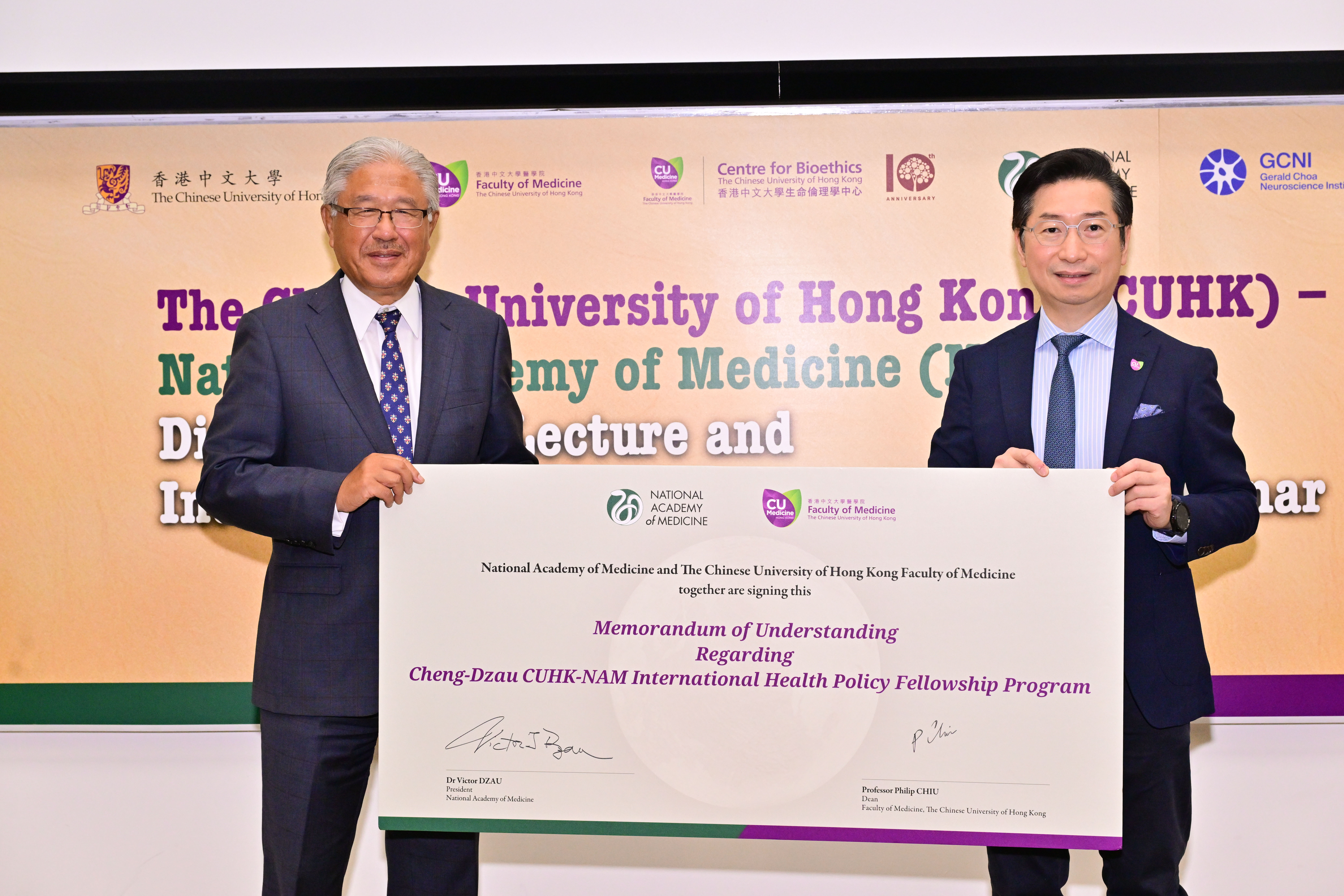
Dr Victor Dzau, President of NAM (left) and Professor Philip Chiu Wai-yan, Dean of CU Medicine sign the MOU to perpetuate the Cheng-Dzau CUHK-NAM International Health Policy Fellowship Program and strengthen the partnership between CUHK and NAM.
Innovations for healthy longevity
This event focused on emerging solutions at the intersection of scientific innovation and public health, addressing the challenges posed by ageing populations globally. Dr Dzau delivered a distinguished lecture on “The New Frontier of Healthy Longevity: Advancing Innovation for Aging Societies”, while Professor Kim Chow Hei-man, Associate Professor from the School of Life Sciences at CUHK and the current NAM International Health Policy Fellow, presented her fellowship seminar on “Bridging Basic Research and Public Health Programs to Advance Sustainability in the Prevention of Alzheimer’s Disease and Related Dementias”.Both presentations underscored the importance of translating scientific and laboratory discoveries into effective public health initiatives for healthy ageing, which means living for a long time in good health and with a good quality of life.
In the Distinguished Lecture, Dr Dzau outlined how advances across biomedicine, data science and technology can extend healthy life years when coupled with mission-driven governance and ethical stewardship. He also emphasised the importance of equitable access as societies age.
Dr Dzau stated: “When you look at countries, very few are prepared to both meet needs and seize opportunities for longer lives; most do well in one dimension, but not in the other. What I want to say today is that, while it is important to develop plans to support the ageing population, the more important issue is how to keep them healthy, and hence the idea of shifting from ageing to a health and longevity concept. Because the goals of longevity go beyond addressing ageing: they aim to improve health span, not just lifespan—the state of good physical, mental, and social well-being.”
Bridging basic research and public health to prevent dementia
Professor Chow discussed translational pathways that can strengthen primary prevention and health system preparedness for Alzheimer’s Disease and Related Dementias (ADRDs). She remarked: “While anti-amyloid therapies have sparked hope, clinical efficacies remain modest, and concerns about broad applicability and long-term side effects remain. In contrast to many other reports that adopt a conventional disease-centered approach to analyse the issue, our effort is centered on a life-course perspective. This perspective is rooted from the recognition that brain ageing and its functional deterioration unfold not only in later life but across the entire lifespan.”
The event brought science, ethics and healthcare policy into productive conversation, creating a dynamic setting for learning and collaboration. The Centre remains committed to enhancing bioethical literacy and promoting international exchange in the field.
Applications for the 2025 to 2027 Fellowship will open in October 2025. For eligibility, timelines and submission details, please visit the Centre’s official website (https://bioethics.med.cuhk.edu.hk) or social media platforms for updates.




